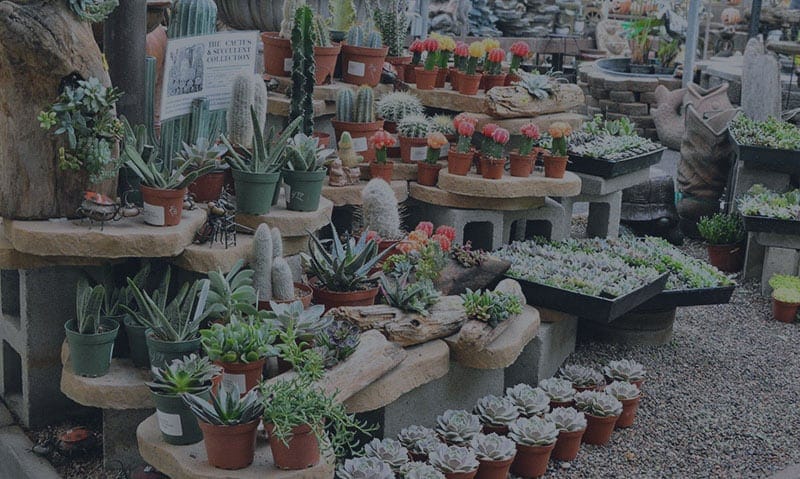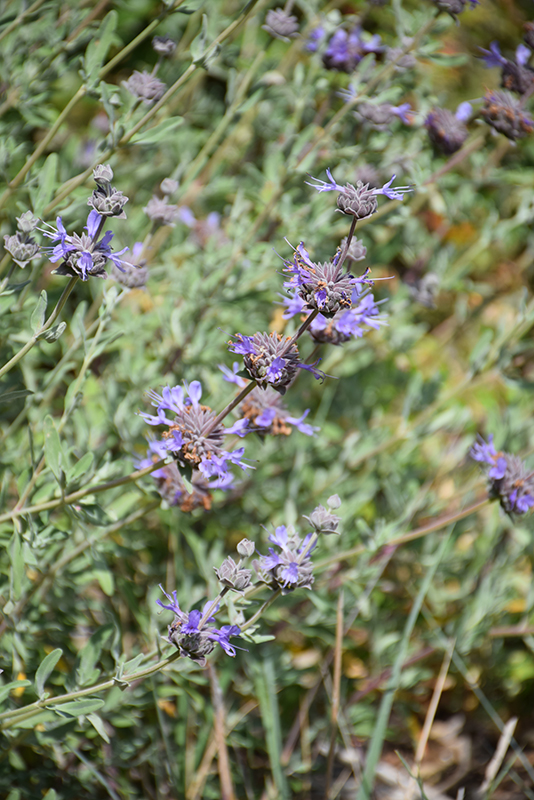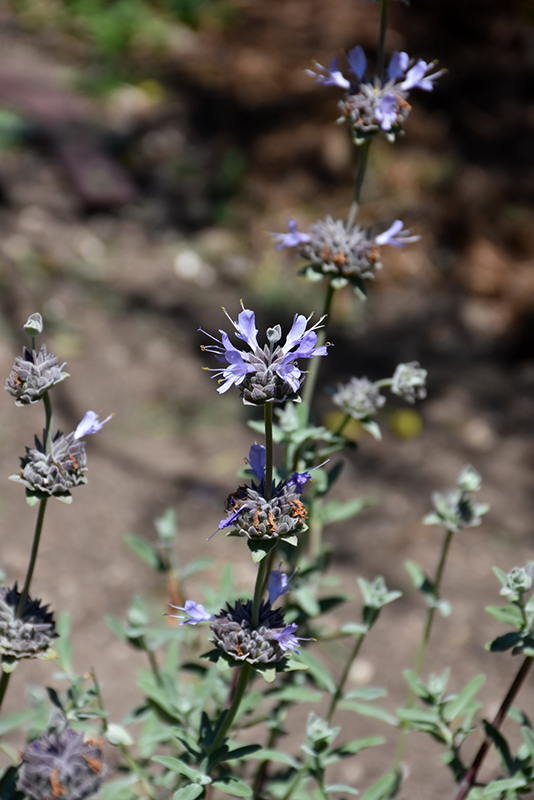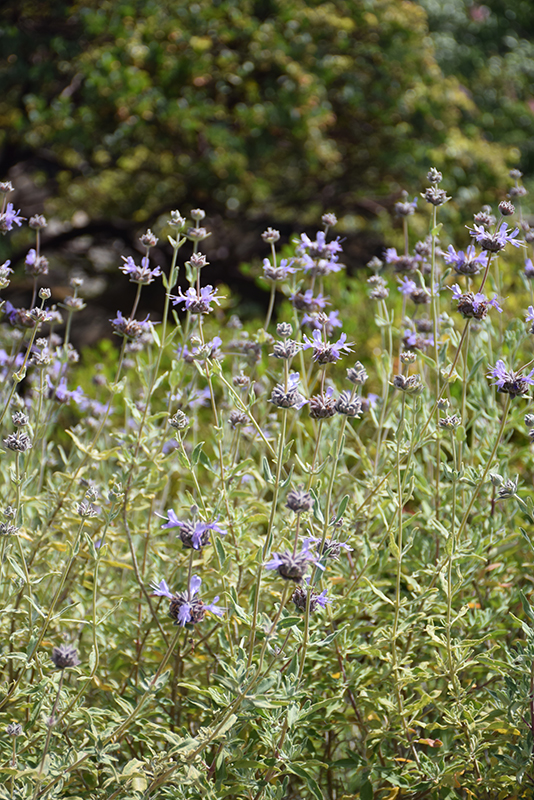Allen Chickering Sage
Salvia 'Allen Chickering'
Height: 5 feet
Spread: 6 feet
Sunlight:
![]()
Hardiness Zone: 8b
Other Names: Salvia clevelandii x leucophylla
Description:
A delightfully fragrant hybrid producing whorls of lavender blooms in spring and summer; great for dry, sunny areas; a beautiful addition to borders or beds with its light gray-green foliage and dense, bushy form; little water required once established
Ornamental Features
Allen Chickering Sage has masses of beautiful spikes of lightly-scented lavender flowers rising above the foliage from late spring to late summer, which are most effective when planted in groupings. The flowers are excellent for cutting. It has attractive grayish green evergreen foliage. The fragrant narrow leaves are highly ornamental and remain grayish green throughout the winter.
Landscape Attributes
Allen Chickering Sage is a multi-stemmed evergreen shrub with an upright spreading habit of growth. Its relatively fine texture sets it apart from other landscape plants with less refined foliage.
This is a relatively low maintenance shrub, and should only be pruned after flowering to avoid removing any of the current season's flowers. It is a good choice for attracting bees, butterflies and hummingbirds to your yard, but is not particularly attractive to deer who tend to leave it alone in favor of tastier treats. It has no significant negative characteristics.
Allen Chickering Sage is recommended for the following landscape applications;
- Mass Planting
- Hedges/Screening
- General Garden Use
Planting & Growing
Allen Chickering Sage will grow to be about 4 feet tall at maturity, with a spread of 6 feet. It has a low canopy. It grows at a medium rate, and under ideal conditions can be expected to live for approximately 10 years.
This shrub should only be grown in full sunlight. It prefers dry to average moisture levels with very well-drained soil, and will often die in standing water. It is considered to be drought-tolerant, and thus makes an ideal choice for xeriscaping or the moisture-conserving landscape. It is not particular as to soil type or pH. It is somewhat tolerant of urban pollution. This particular variety is an interspecific hybrid. It can be propagated by cuttings; however, as a cultivated variety, be aware that it may be subject to certain restrictions or prohibitions on propagation.




